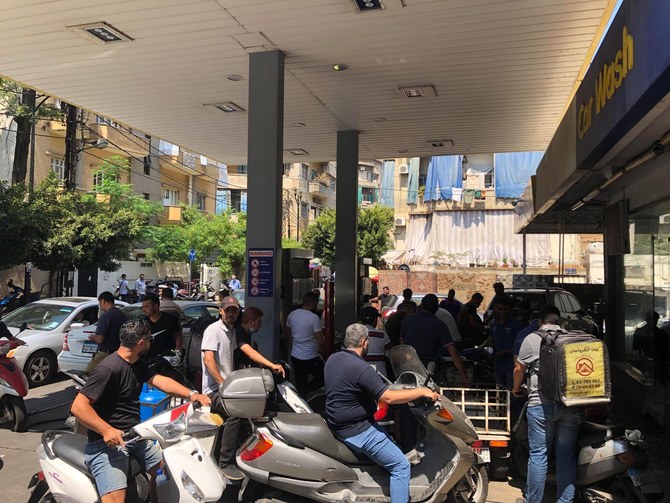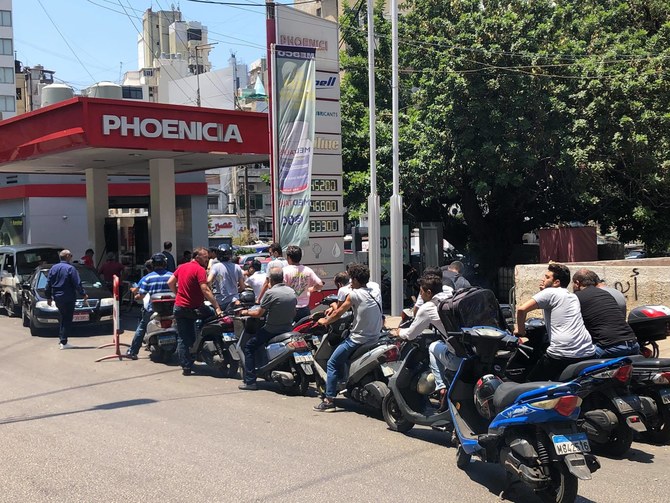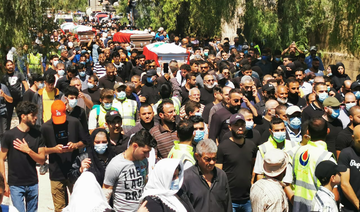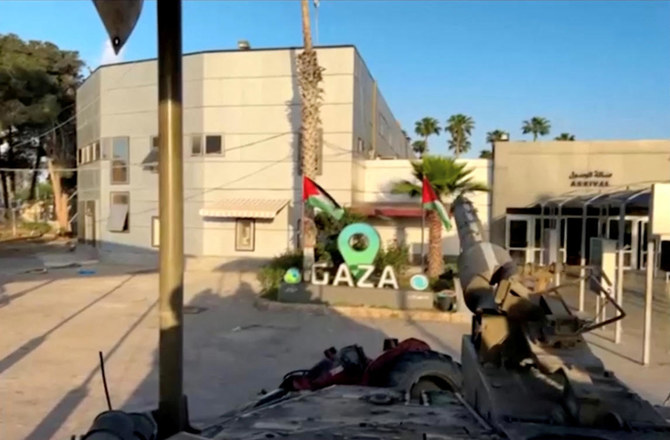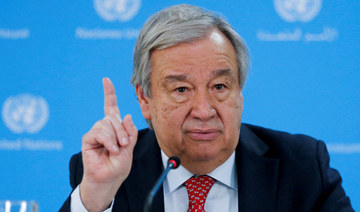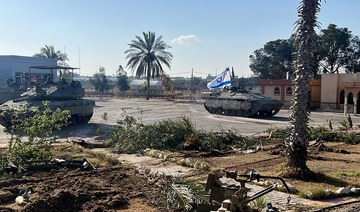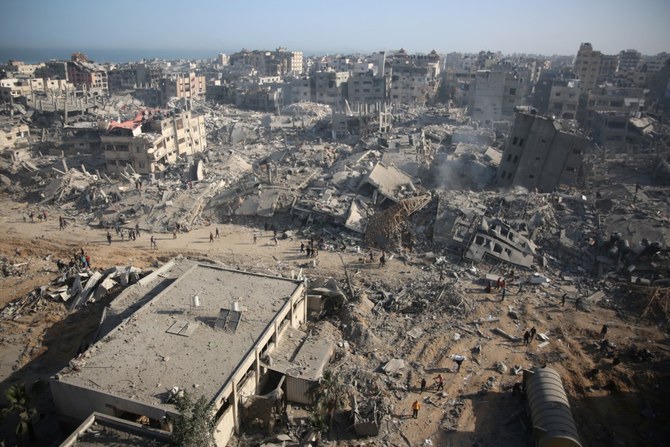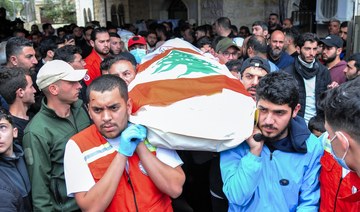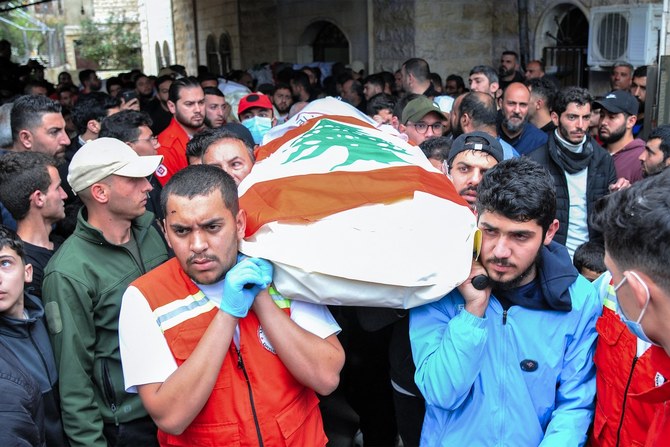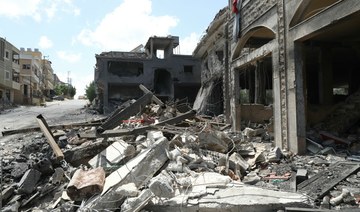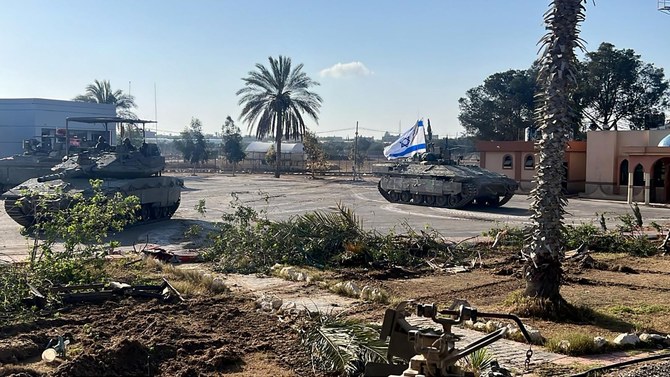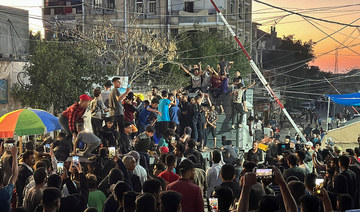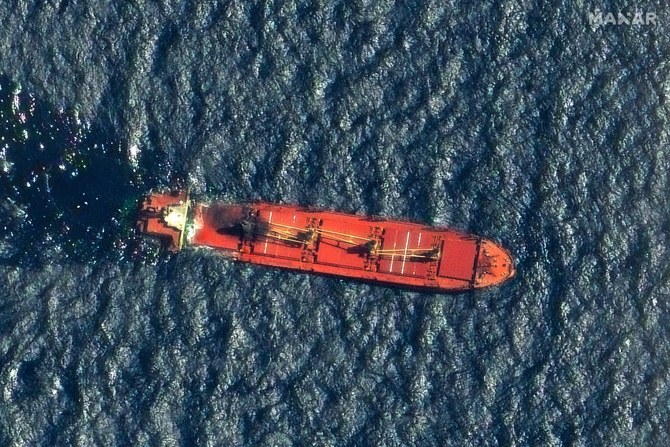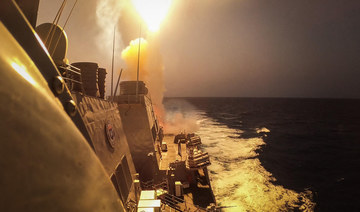BEIRUT: Lebanon is suffering massive fuel shortages amid the worsening economic crisis in the country. Long queues outside gas stations have sparked brawls, traffic jams, accidents on nearby roads and even gunfights.
Abdo Mustafa, an Egyptian expatriate working as a gas station attendant in Beirut, revealed that following the announcement last weekend of an increase in fuel prices he has been insulted and beaten by some people among the long queues of drivers waiting to fill up their vehicles.
He came to Lebanon to “earn good money to support his family, not be beaten or insulted,” he told Arab News on Thursday.
“This fuel-shortage crisis has developed so quickly, and its grimness and uncertainty has unfolded vastly and negatively on migrant workers in Lebanon.”
Mustafa, a 37-year-old father of two, has now decided to return home because of the devaluation of the Lebanese currency and the scarcity of dollars amid a worsening economic crisis, along with the personal abuse he is receiving as a result of the worsening fuel shortages.
On Thursday, Lebanon’s National News Agency reported that President Michel Aoun was heading a meeting to address the fuel crisis and its effects. The other participants included the caretaker ministers of power and finance, and the governor of Banque du Liban, Lebanon’s central bank.

With more than 10,000 expatriates employed at about 2,000 gas stations in Lebanon, it seems likely that more will leave as soon as they can afford to do so, given the escalating risk of insults, assaults and even death threats. (AN Photo/Bassam Zaazaa)
They discussed a number of proposals designed to prevent any damaging escalations that might affect security and social stability. Local media reported that plans were approved to import subsidized fuel at the higher exchange rate of 3,900 Lebanese pounds to the dollar, which is the rate at which customers are currently permitted to withdraw their savings, instead of the official exchange rate of 1,500 pounds.
Ebrahim, the Lebanese manager of a gas station in the Hamra area, said he believes fuel prices will continue to rise.
“This has got to end, otherwise security deterioration is inevitable,” he told Arab News. “A Bangladeshi and a Sudanese worker already left us. They couldn’t tolerate the economic situation, or being attacked by irritated clients.”
He added that the action agreed by the authorities during Thursday’s meeting is merely a temporary solution.
Egyptian worker Abdullah Ahmad said the economic situation in Lebanon was so “good and enticing” when he arrived in the country in 2011.
“When we could purchase the dollar at (the official rate of) 1,500 (pounds) we made good money that we sent to our families. My cousin convinced me to come,” he said.
Now Ahmad, too, is trying to save money so that he can afford to return home.
“I didn’t come here to be humiliated,” he said. “Last week a provoked client cursed my whole family when the fuel ran out before his turn.”
Gas stations have been constantly low on subsidized fuel for many weeks but the shortages got worse this month as fears grew among the public of rationing and pumps running dry. As a result, a large number of petrol stations closed.
“A number of fistfights, heated arguments and shootings have taken place between irritated drivers,” an official from the Internal Security Forces told Arab News. “We have been dispatching two or three policemen at the most-crowded stations to organize traffic flow and enforce security.”
Some workers were reluctant to talk to the media, while others declined to give their names. When approached by Arab News, the manager of one gas station in the Dar Al-Fatwa area said: “Please leave; we don’t want media.”
A few blocks away, in the Msaytbeh neighborhood, Bangladeshi gas station employee Abdul Rahim said that that after being beaten and insulted by waiting motorcyclists last month he asked his boss to move him from pumping fuel to washing cars.
Afraid to give his full name, the 41-year-old added that the area where he works is popular with supporters of the Amal Movement, a Shiite political party led by Speaker of the Parliament Nabih Berri, a major ally of the pro-Iranian Hezbollah.
The moment the gas station opens, Abdul Rahim said, people flock there. He added that he was surprised “how quickly they learn that the station has opened.”
Several brawls among queuing customers have escalated into gunfights, he added.
“Last month, a massive crowd of motorcyclists shouted and yelled and cursed at me to fill their tanks … after I stopped the pump,” he told Arab News. “I don’t remember how many blows I took or how many times my mother was cursed.”
Nour M., who is also from Bangladesh, and declined to give his full name, said that the neighborhood in which he works is full of supporters of Future Movement leader Saad Hariri, “who flock to the gas station in their hundreds wanting to jump queues and fill up with gas.”
He added: “When (it runs out) I have to simply stop. Angry clients, who look like thugs, instantly beat us. Mostly, they come armed with sticks and beat us if we don’t fill (their tanks).”
The 37-year-old also revealed that he has received death threats, and that he knows many people working in gas stations who take kickbacks in return for ensuring drivers can fuel their vehicles.
“Actually we would be lucky to get extra money to permit them to fill their tanks … with the dollar crisis, some of us act boldly and take kickbacks to recover our losses,” he said.

On Thursday, Lebanon’s National News Agency reported that President Michel Aoun was heading a meeting to address the fuel crisis and its effects. (AN Photo/Bassam Zaazaa)
The manager of another gas station, who refused to give his name because he feared for his safety, said that the owners of many stations suffer at the hands of “politically-affiliated thugs who come in motorcycle groups and terrorize the peaceful car drivers who are lined up.”
He added: “They jump lanes, terrify and threaten our workers. We often encounter more than 10 fights a day.”
Nour Awad from Sudan, who works at a gas station in the Mount Lebanon area, told Arab News that he was shot at in May when he refused to fill a vehicle after the pumps closed.
“I phoned my boss, who was shot at and injured because he refused to open the pumps — he was hospitalized,” he said.
Awad added that he, too, is trying to save enough money to fly back home “as I cannot live or survive here anymore.”
With more than 10,000 expatriates employed at about 2,000 gas stations in Lebanon, it seems likely that more will leave as soon as they can afford to do so, given the escalating risk of insults, assaults and even death threats.
Gas station workers, who mostly come from Bangladesh, Egypt, Syria and Sudan, previously earned the equivalent of about $400 a month, but this has been reduced to about $40 by the devaluation of the Lebanese currency and the soaring exchange rate amid an economic collapse a World Bank report described as the “world’s worst since the mid-19th century.”
Thousands of domestic workers from Asia have also left Lebanon since the financial crisis escalated after the 2019 protests in the country, and salaries lost more than 85 percent of their purchasing power.


